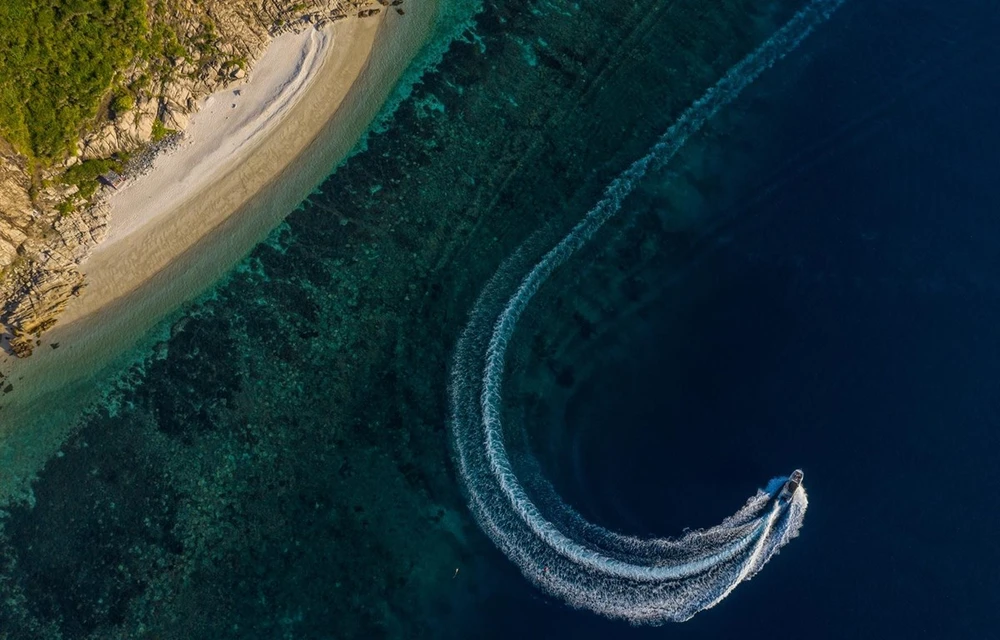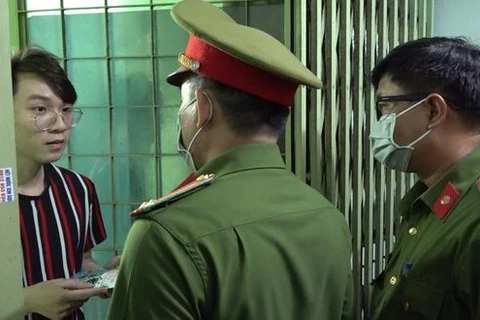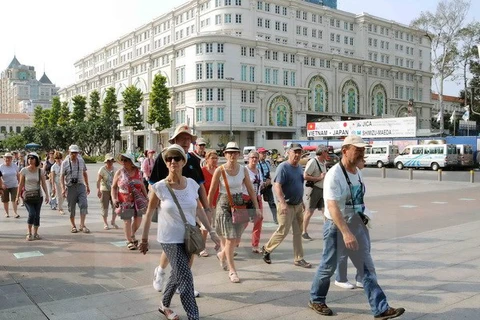
Hanoi, (VNA) – Amidst the resurgence of COVID-19, travel firms have recognised that stronger connection is key for them to surmount difficulties together.
In this context, investors in tourism services, travel firms, airlines as well as leaders of the tourism sector agreed that only by uniting together, they can avoid collapse and prepare for new recovery.
“Symbiotic” relations
Seeing pressures burdening businesses due to the large number of suspended and cancelled tours, Vice Standing Chairman of the Vietnam Tourism Association Vu The Binh said that the majority of domestic travel firms are small and medium-sized enterprises, many of which have been exhausted by the previous wave of COVID-19 pandemic.
When the pandemic returns, the important thing is to maintain the existence of those firms before the pandemic is controlled, and help them recover again, he said.
He noted that so far, many owners of hotels have been forced to sell or transfer their facilities. Meanwhile, incomes from promotion programmes have only helped the firms maintain their operation without any profit.
According to Binh, amidst this tough period, tourists and travel firms should support each other to ease the sector’s difficulties, while tourism enterprises should show mutual trust to overcome the “storm” together.
Nguyen Hong Nga, a representative from the Vietnam Airlines, said that in this wave of COVID-19, the carrier has shown fast response thanks to its experience drawn in the previous wave of the outbreak. Customers are allowed to change their flights and routine, receive refund or keep their deposit until the end of June 2021, she said.
“After the pandemic is kept under control, we will launch the second promotion programme. We need orientations from the Vietnam National Administration of Tourism and the Vietnam Tourism Association to build a number of tourism promotion programmes until 2021,” said Nga.
Meanwhile, Vietjet Air Deputy General Director Dinh Viet Phuong said that the budget airline has worked to ensure the interest of travel firms by reserving bookings in 180 days and longer.
Deputy head of the Civil Aviation Authority of Vietnam Vo Huy Cuong held that aviation and tourism have accompanied together. “Without tourism, airlines cannot develop, and vice versa”.
 Foreign tourists visit a historical site in Vietnam before COVID-19 broke out (Photo: Contributor/VietnamPlus)
Foreign tourists visit a historical site in Vietnam before COVID-19 broke out (Photo: Contributor/VietnamPlus) Stronger connection to overcome “storm”
Head of the Vietnam National Administration of Tourism Nguyen Trung Khanh asserted that COVID-19 has posed adverse impacts on tourism and aviation as well as many other sectors, but compared to the first wave of the pandemic, this time, tourism has been more active with a recovery scenario.
According to Khanh, airlines have supported travel firms, while accommodation facilities have offered optimal conditions for visitors. Solidarity for overcoming difficulties is a positive signal of the Vietnamese tourism sector, which can help speed up the sector’s recovery.
Recently, nearly 200 CEOs of travel firms set up groups on Facebook to connect with each other and discuss issues related to product designing, marketing, communications, services, so that they can agree on matters related to price and sales.
The groups have helped participants enhance the quality of their services and share resources to reduce cost. They have committed with customers to ensuring no arising fee despite the postponing of tours.
 A bright and peaceful “dawn” is expected to return to the tourism sector (Photo: Contributor/VietnamPlus)
A bright and peaceful “dawn” is expected to return to the tourism sector (Photo: Contributor/VietnamPlus) The Vietnam National Administration of Tourism head pledged that the agency will continue advising the Ministry of Culture, Sports and Tourism to give proposals to the Government on solutions.
He held that it is crucial for management agencies as well as aviation, transport and accommodation enterprises to shake hands to deal with urgent problems such as tour suspension and cancellation.
Airlines should design flexible policies and consider the refund for travel firms, while preparing plans to welcome foreign tourists when it is possible.
The administration will also advise the ministry to propose to the Government policies to create favourable conditions for businesses to borrow capital from the 62 trillion VND package, along with the extension of VAT and corporate income tax payment and land rent, thus reducing cost for accommodation facilities, he stated./.























